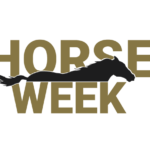August 6, 2009 — State game lands can be beautiful places to ride horses. However, riding (along with hiking, biking and other uses) is permitted or restricted by individual state policy. The purchase and maintenance of these lands is generally funded by the sale of licenses and sporting goods purchased by anglers and hunters. If equestrians wish to ride on state wildlife management areas (WMA’s), they must understand the priorities for game lands, and develop positive relationships with game land managers.
Equine Land Conservation Resource (ELCR) has prepared a white paper detailing the access of equestrians to state game lands in three states. The models presented by Pennsylvania, New Jersey and New Mexico show varying levels of access and regulations for users. Using these models, ELCR was able to develop a set of recommendations for horsemen seeking access in other states.
The report addresses the issues of balancing hunting and fishing demands with other recreational uses. In each model, solutions have been reached that comply with a state’s demands and allow various users to experience wildlife on state lands. Sensitive issues like the use of Pittman-Robinson funds and the sale of riding permits have been addressed.
Cynthia Higgs of Equine Land Conservation Resource spoke with game land managers to determine the scope of the issues of horseback riding on game lands and how horsemen can develop positive relationships with game land managers. Ultimately, all the managers interviewed suggested that horseback riders desiring access to state game lands make an effort to volunteer on those lands as well. Efforts ranging from litter removal to advocating for legislation that is beneficial to wildlife programs will help foster a cooperative relationship.
The goal of the report is to help horsemen understand the challenges that non-hunting users present to state fish and wildlife land managers and present solutions to those challenges that are beneficial for all parties involved.
To read the full report, visit www.elcr.org/resources/resc_31.pdf.





